Ayo Edebiri Is Special To Me Because Bluntly Speaking, Every Time A Young Actress Of Colour Blows Up
Ayo Edebiri is special to me because bluntly speaking, every time a young actress of colour blows up in Western media spotlight it's usually a light skinned woman or a biracial person with very Eurocentric features and beauty. It's almost like clockwork every time, and the standards of beauty are carefully upheld by colourism even while maintaining a guise of "diversity". But in Ayo's case, it's really great having a gorgeous and talented dark skinned actress be successful, beloved and hailed as a sapphic icon in a way that does not feel like audience paying lip service or being performative.
Like idk how to articulate but it's just so goddamn rare seeing an actual young dark skinned woc thrive in fandom spaces and in terms of commercial or critical success. I really hope people can learn to accept dark skinned young women in comedies, romances and mainstream show business more often because everywhere in movie and shows fandoms, from edits to fanart to fancasts to *actual* casts are BRIMMING with light complexioned actresses of colour. And dark skinned women are expected to grovel and be grateful for getting those crumbs of representation.
More Posts from Sayaosi and Others






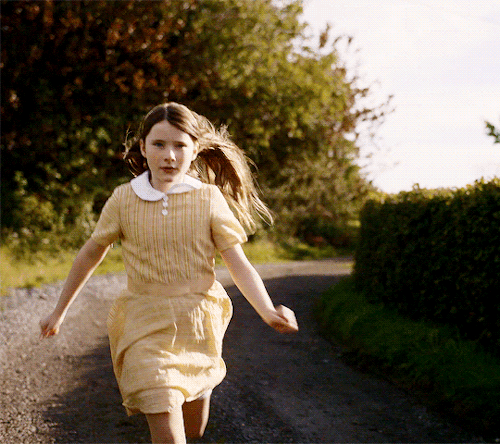
The Quiet Girl ‘An Cailín Ciúin’ (2022) dir. Colm Bairéad
really love dynamics that are like 'it honestly doesn't matter if you view them as romantic or platonic, the point is that they love each other. the type of love is inconsequential, all that matters is that it's there'. gotta be one of my favorite genders.




“Eun-hee… When you’re tired or sad, try looking at your fingers. Then, one by one, move them around. It’ll feel very mysterious. You feel like you can’t do anything, but you can move your fingers.”
House of Hummingbird (2018), written and directed by Kim Bora
I miss Jude.
Sometimes I don’t know what I really mean by that. At least right now what I mean is that I miss reading his dialogue. A good amount of the book is about his thoughts and actions. But his conversations —his innocent questions, his sarcastic humor, his petulant stubbornness, his lengthy discussions about law and math — are precious to me. I miss reading him speak.
Some days I miss his routines, other days I miss his introspection. Today I miss his voice, even though I’ve never heard it before.
The thing about Wes Anderson's films is that I don't always connect with the stories he is telling, but by fucking god do I appreciate the craftmanship that went into making them.
Watched/read
Feminine and feminist cinema.
House of Hummingbird: the main character, Eunhee, was in eighth grade in 1994, which is to say she – and Kim Bo-ra, the director – are nearly exactly my age. It’s a sensitive, Proustian evocation of a ‘90s South Korean female adolescence, parts of which I relate to (those pagers!), parts of which I knew nothing about (one date chyron I won’t spoiler, that drew gasps from the audience), and parts of which are evergreen (dysfunctional Asian families where the only love languages are verbal abuse and food, and emotional support is non-existent even for favoured first sons). The sporadic outbursts of domestic violence, in particular, are so true to life as to be triggering; it made me think of people IRL to whom I’d only recommend the film with a warning. The actors are all very good but the one I’ll think back to is Kim Sae-byuk, who plays Eunhee’s mysterious yet relatable Chinese tutor and imbues the supporting character with a vast sense of inner life. The camera watches her face and you feel what she’s feeling for this girl, from the other side of the unidirectional gulf that is the Tired Adult™ looking upon an eighth grader much like she once was.
21st Century Girl: a thematic omnibus of short films commissioned from emerging female Japanese filmmakers, each of which has to be about love, gender, or sexuality in some way. One does what one can with the running time: some oblique love stories, some LGBT themes, some in media res snippets of what might eventually end up as feature-lengths with a beginning and an end, lots and lots of photographic montage and manifestos in voiceover. I liked “Your Sheet,” a gender-fluid erotic story that was also the most successful bit of standalone short fiction, and the rom-com concept of “Sex-less Sex-friends.”
Dare to Stop Us: for once I would have liked a Q&A session with the director and writer, because I have questions. The film is a dramatization of the late ‘60s-early ‘70s imperial period of Wakamatsu Studios, the “pink film” (experimentally x-rated, but also raging leftist pink-o) outfit founded by Wakamatsu Koji, an enfant terrible of Japanese cinema who used to be yakuza and purportedly turned to film so he could kill off cops without getting arrested. The main character is Megumi, a hippie girl who joins the studio at the age of 21 and works her way up to first AD within the year, not least due to the other ADs quitting. Megumi comes off as a designated-naif entry-point POV, possibly – I thought – a composite of women who worked for Wakamatsu, and the arc of her story seemed to bend toward surviving (gender-neutral) workplace hazing and becoming a successful indie director in her own right, as Wakamatsu promises when he hires her. Spoilers: she is not a composite! She existed, and what happens to her is gut-wrenching! It’s a rug-pull, honestly, especially since the director Kazuya Shiraishi worked with Wakamatsu and the initial vibe is “feel-good biopic of characters and environment I have huge nostalgic affection for.” In retrospect, one has to conclude he was half making that movie, half interrogating how the guerrilla filmmaking milieu can chew up the people who love it most, and is particularly unforgiving to women even when their bosses and peers aren’t overtly sexist.
(I also have questions about the slickly urbane portrayal of Oshima Nagisa, sitting in a cafe with his sunglasses telling Wakamatsu not to push his pro-Palestinian documentary too hard because the film world is “run by Jews,” because hoo boy was that a Moment.)










You think disaster just falls over the sky? No. We have come step by step towards this fate.
FAREWELL MY CONCUBINE 霸王別姬 (1993, Chen Kaige)

I feel like I've never seen anyone talk about one of the reasons that being aro is so lonely is that we aren't really allowed to form deeper connections with people.
I'm not allowed to be too close to my friends because if I am then they'll read it as romantic. Their partners will think they're cheating on them with me.
I'm not allowed to touch other people in a way that's too friendly. I'm not allowed to cuddle with people. I'm not allowed to bare my heart and soul to people. I'm not allowed to hang out one-on-one with anyone. All of those things are reserved for people who aren't me. People who can't be me.
Yeah "more than friends" is stupid and friends can be just as important and close as romantic partners but what non-aro actually believes that? What non-aro would let go of their ownership of their partner for long enough to allow me to have any form of affection?
[Do not tag as ace/aroace or derail]


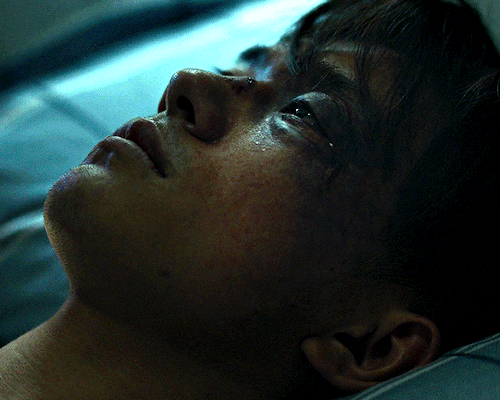
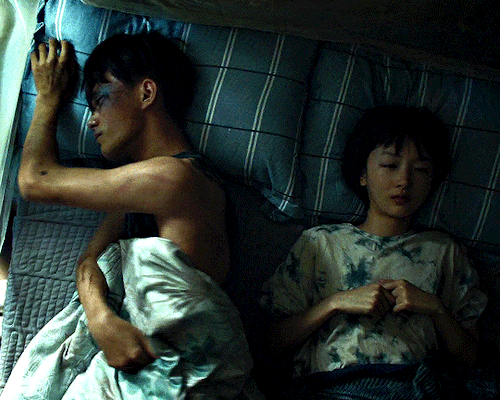

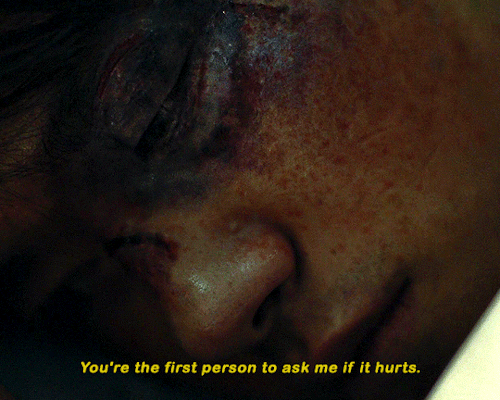
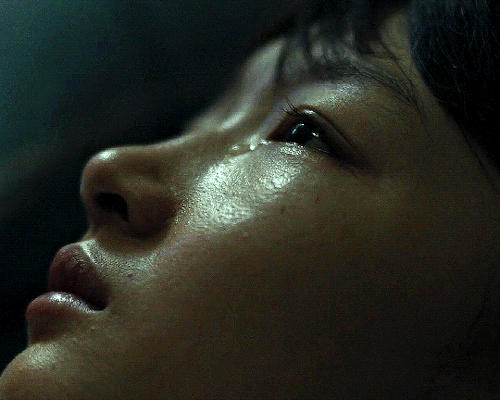

BETTER DAYS 少年的你 (2019) dir. Derek Tsang






THOMAS SHELBY + smoking
-
 nadiapym liked this · 2 months ago
nadiapym liked this · 2 months ago -
 incomprehensible-ants liked this · 3 months ago
incomprehensible-ants liked this · 3 months ago -
 hoeheaven reblogged this · 3 months ago
hoeheaven reblogged this · 3 months ago -
 hoeheaven liked this · 3 months ago
hoeheaven liked this · 3 months ago -
 holdthehandinsideyouu liked this · 3 months ago
holdthehandinsideyouu liked this · 3 months ago -
 kycldntcare liked this · 4 months ago
kycldntcare liked this · 4 months ago -
 hoefortoes1 liked this · 4 months ago
hoefortoes1 liked this · 4 months ago -
 sneeplerbeepler liked this · 5 months ago
sneeplerbeepler liked this · 5 months ago -
 yellowpoppyyeah liked this · 5 months ago
yellowpoppyyeah liked this · 5 months ago -
 papirouge reblogged this · 5 months ago
papirouge reblogged this · 5 months ago -
 4nythin6 liked this · 5 months ago
4nythin6 liked this · 5 months ago -
 valhallgreg reblogged this · 6 months ago
valhallgreg reblogged this · 6 months ago -
 valhallgreg liked this · 6 months ago
valhallgreg liked this · 6 months ago -
 ethanfundraising reblogged this · 6 months ago
ethanfundraising reblogged this · 6 months ago -
 ethanscrocs liked this · 6 months ago
ethanscrocs liked this · 6 months ago -
 ateezsblessing liked this · 6 months ago
ateezsblessing liked this · 6 months ago -
 ssolarsappho liked this · 7 months ago
ssolarsappho liked this · 7 months ago -
 barbenheimer-core liked this · 8 months ago
barbenheimer-core liked this · 8 months ago -
 zarby301 liked this · 8 months ago
zarby301 liked this · 8 months ago -
 sayaosi reblogged this · 9 months ago
sayaosi reblogged this · 9 months ago -
 morbus-mlm liked this · 9 months ago
morbus-mlm liked this · 9 months ago -
 papirouge liked this · 9 months ago
papirouge liked this · 9 months ago -
 confelicityrush liked this · 9 months ago
confelicityrush liked this · 9 months ago -
 harmoniqua56 liked this · 9 months ago
harmoniqua56 liked this · 9 months ago -
 sayaosi liked this · 9 months ago
sayaosi liked this · 9 months ago -
 onlysarcastic-bffr liked this · 9 months ago
onlysarcastic-bffr liked this · 9 months ago -
 king-of-mortar liked this · 10 months ago
king-of-mortar liked this · 10 months ago -
 meemawsbigtiddies reblogged this · 10 months ago
meemawsbigtiddies reblogged this · 10 months ago -
 meemawsbigtiddies liked this · 10 months ago
meemawsbigtiddies liked this · 10 months ago -
 savorydreamsss reblogged this · 10 months ago
savorydreamsss reblogged this · 10 months ago -
 gvamps liked this · 10 months ago
gvamps liked this · 10 months ago -
 endereyes222 liked this · 10 months ago
endereyes222 liked this · 10 months ago -
 avifromaplaceofcaring reblogged this · 10 months ago
avifromaplaceofcaring reblogged this · 10 months ago -
 puttingthehorrorsinajar liked this · 10 months ago
puttingthehorrorsinajar liked this · 10 months ago -
 bi-witch-of-chaos reblogged this · 10 months ago
bi-witch-of-chaos reblogged this · 10 months ago -
 bi-witch-of-chaos liked this · 10 months ago
bi-witch-of-chaos liked this · 10 months ago -
 cookies675 liked this · 10 months ago
cookies675 liked this · 10 months ago -
 lavendertreehugger liked this · 11 months ago
lavendertreehugger liked this · 11 months ago -
 coloursisee reblogged this · 11 months ago
coloursisee reblogged this · 11 months ago -
 welcometothevoiddarling liked this · 11 months ago
welcometothevoiddarling liked this · 11 months ago -
 rolling-in-the-deep-348 reblogged this · 11 months ago
rolling-in-the-deep-348 reblogged this · 11 months ago -
 fadingmiracleobject liked this · 11 months ago
fadingmiracleobject liked this · 11 months ago -
 heynowheynowwwwy liked this · 1 year ago
heynowheynowwwwy liked this · 1 year ago -
 sidebloggotdeletedddddd reblogged this · 1 year ago
sidebloggotdeletedddddd reblogged this · 1 year ago

She/her | 22 | 🩷💛🩵-💚🩶🤍🩶💚Blogging about my various interests including TV shows, film, books, video games, current events, and the occasional meme. My letterboxed: https://boxd.it/civFT
123 posts